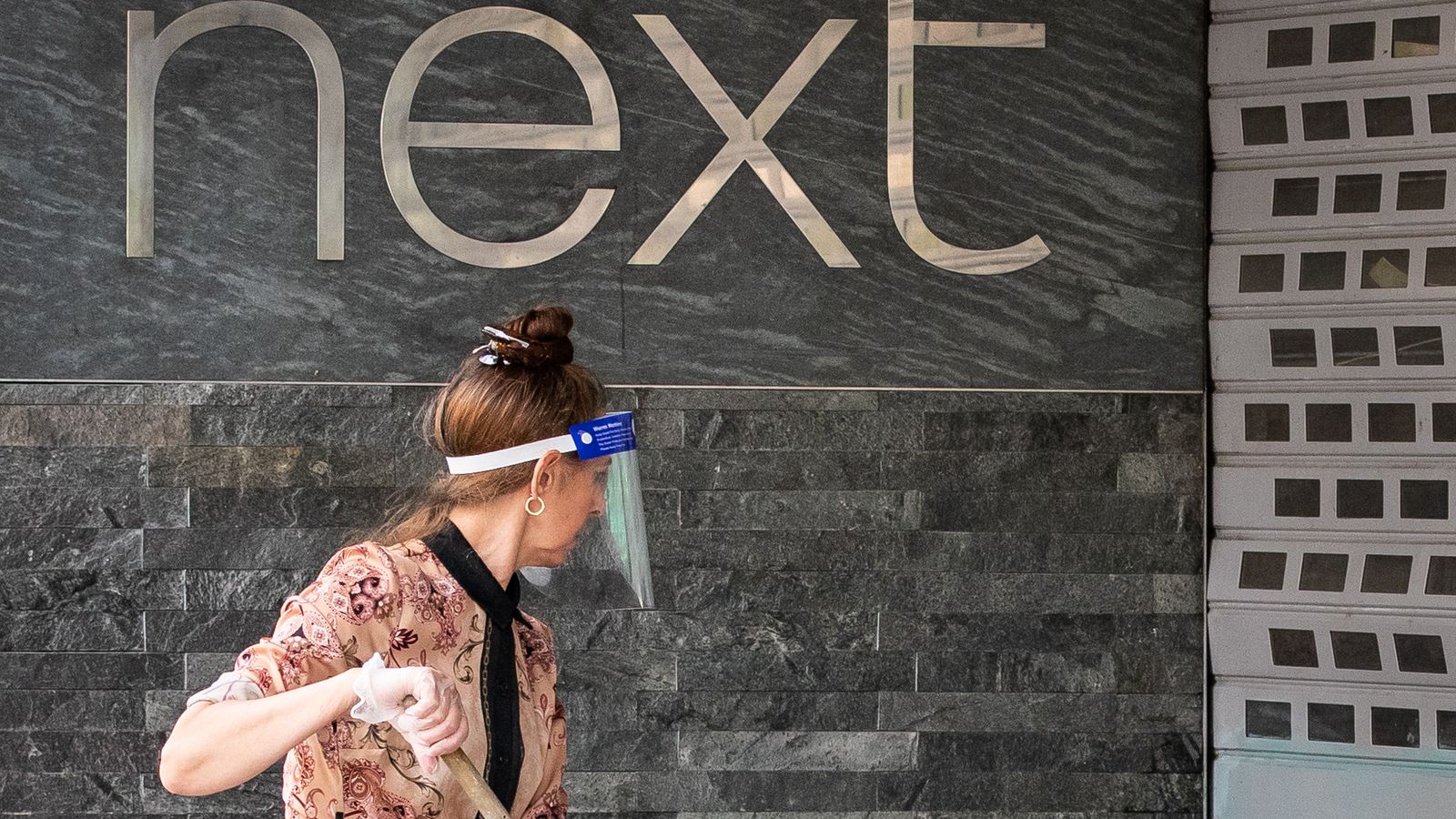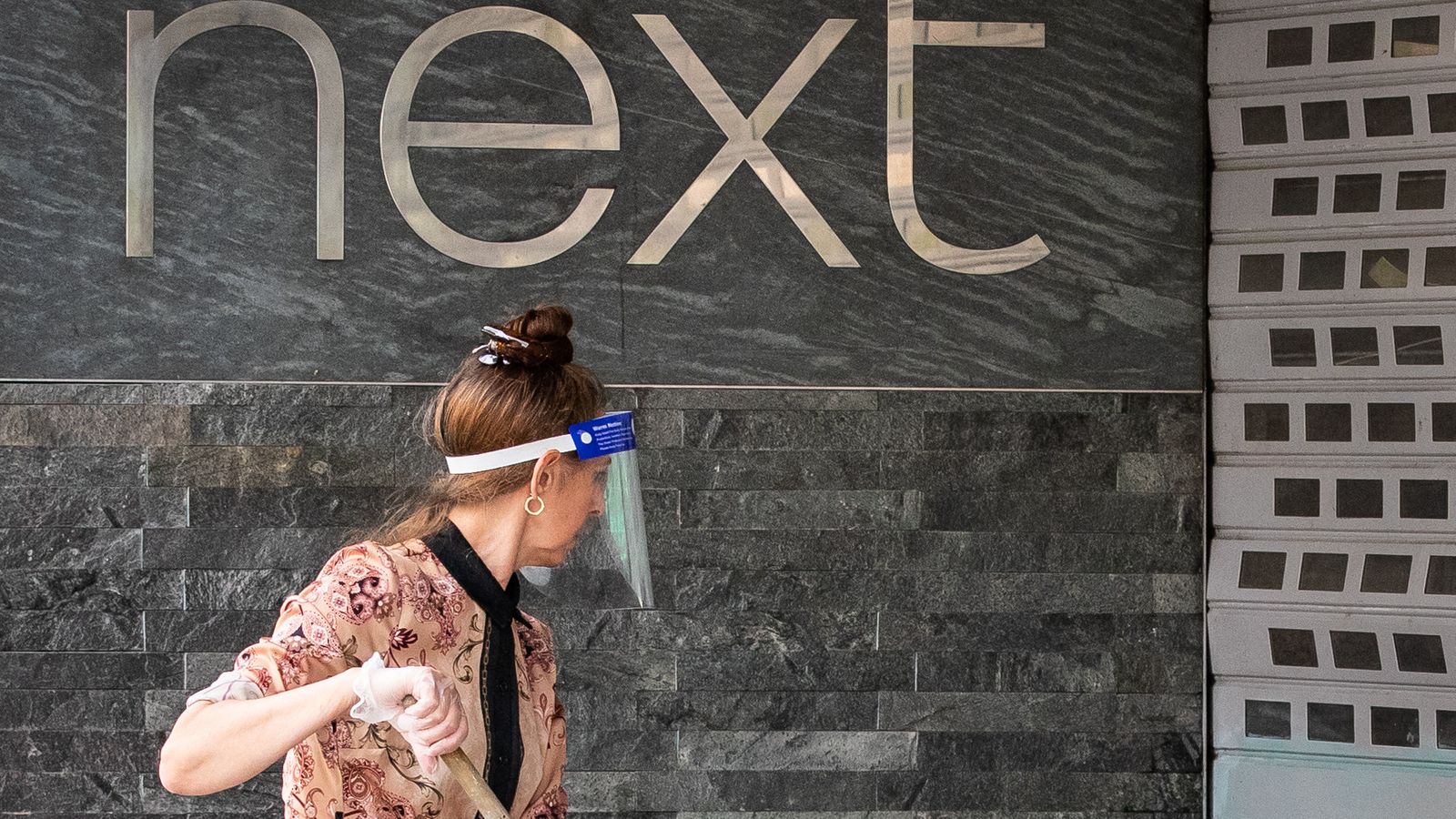
Fashion retailer Next has warned of the impact the “rule of six” could have on festive sales as it reported a half-year loss.
The group saw full-price sales slump by 33% in the six months to 25 July though a pick-up in recent weeks, spurred by cooler weather and staycations, saw it upgrade its outlook for the rest of the financial year.
However, it warned of further pressure on demand thanks to factors such as newly-tightened social distancing rules.
Next said the recently implemented “rule of six”, if still in force in December “is likely to depress demand for gifts and clothing associated with traditional Christmas family get togethers”.
The group said it made a half-year loss of £16.5m, down from £327m a year ago, as sales were crushed by the pandemic but it said that in the last seven weeks they rose 4%.
The group is now forecasting annual earnings of £300m, down from £729m a year before but more optimistic than the £195m previously pencilled in.
Lord Wolfson, Next’s chief executive, said: “The company’s sales performance through the pandemic has been more resilient than we expected.
“The scale of our online business (in the UK and overseas), the breadth of our product offer, and the fact that much of our store portfolio is located out of town, have served to mitigate the worst effects of the pandemic on trade.”
Next’s physical stores were worst affected by the lockdown in the first half, with sales falling 61%, while online demand jumped by 14%.
In the 13 weeks since stores reopened, full-price sales had been “much better than we anticipated”, the group added, down 2% on last year.
“Unfortunately, we believe that recent sales are very unlikely to be indicative of our sales performance for the rest of the year.”
Next said it believed sales in August and September had been boosted by fewer people taking overseas holidays in August and cool weather at the end of the month – compared to a heat wave last year – which lifted demand for warmer autumn ranges.
The group forecasts that for the full year, sales will be down by 12% overall – cautioning that the end of the furlough scheme, the onset of winter potentially worsening the pandemic, and tightened social distancing rules will keep demand under pressure.

